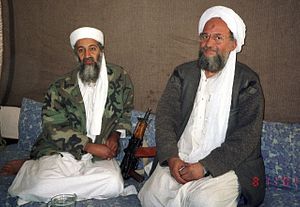The August 30 bombing of the Chinese Embassy in Bishkek was perpetrated by a member of the Turkestan Islamic Party (TIP), also known as the East Turkestan Islamic Movement (ETIM). The terrorist attack was directly related to a call to Uyghur militants by al-Qaeda’s Zawahiri on July 2, 2016.
In his address, Zawahiri urged Uyghur Islamists to “have patience” in dealing with “atheist Chinese invaders” in the Xinjiang Uyghur Autonomous Region in northwest China, and “strengthen the fire of jihad” against the Beijing authorities in “Dar al-Kufr” (land of disbelief, a term for lands where Islamic law is not applied). Dar al-Kufr for Uyghur Islamists means not only the Chinese state and the Xinjiang Uygur Autonomous Region, but also its neighboring Central Asian states, Kyrgyzstan and Kazakhstan.
There are about 10 million Uyghurs in Xinjiang, 250,000 in Kazakhstan, and more than 50,000 in Kyrgyzstan. Chinese authorities have carried out a deliberate policy of Uyghur assimilation primarily through mass migration of ethnic Han Chinese to Xinjiang. Uyghur nationalists oppose the demographic, ethnic and religious policies of the Chinese government. Periodically jihadists of the Turkestan Islamic Party organize terrorist attacks in the region.
On August 30, 2016 a suicide bombing was carried out at the Chinese Embassy in Bishkek. The bomber rammed the gates of the embassy with a car, then detonated a bomb. The attack injured several members of the embassy staff and caused extensive damage to the embassy building and grounds. On September 7, 2016 the State Committee of National Security of Kyrgyzstan reported that some of the organizers of the attack had been detained while others were declared wanted.
According to intelligence agencies, members of Jabhat al-Nusra financed the attack on the Chinese Embassy in Bishkek through a local cell leader in Kyrgyzstan. The attacker, who carried a passport with the name Zoir Khalilov, was a 32-year-old ethnic Uyghur who was a member of the Turkestan Islamic Party.
Two weeks before the explosion in Bishkek, The Diplomat published an article in which I discussed the revitalization of TIP’s propaganda schemes and terrorist activities. The Bishkek attack underscores these efforts. China and the governments of Central Asia should note that the TIP has become one of the key players in global Islamic jihad and can organize a terrorist act outside of China. In other words, the law enforcement agencies of Central Asia must keep their eyes open.
Kyrgyz authorities failed to prevent the attack, indicating a low level of intelligence work and lack of training. Instead of fighting the external enemy, jihadists in Central Asia and the Middle East, the Kyrgyz state is engaged in the persecution and repression of domestic political opposition. In May 2016 security forces arrested leaders of the National Opposition Movement of Kyrgyzstan Bektur Asanov and Kubanych Kadyrov, as well as opposition People’s Parliament leaders Bekbolot Talgarbekova, Marat Sultanov, and Torobay Kolubayev, accusing them of attempting a coup d’etat. The arrested opposition politicians had harshly criticized the government and demanded the resignation of President Almazbek Atambayev. The trial of the opposition leaders were held behind closed doors and they are all now kept in detention centers without being given proper legal protection.
Al-Qaeda Admires the Resilience of Uyghur Jihadists
Terrorist organizations such as the TIP and Jama’at al-Tawhid wal-Jihad are affiliated with al-Qaeda and conduct hostilities in Syria under a wing of Jabhat al-Nusra against Bashar al-Assad’s government. It was reported that on July 28, 2016 that Abu Muhammad al-Julani, the leader of al-Nusra had announced that the group would be renamed Jabhat Fateh al-Sham. All four groups were listed among banned extremist organizations by a Bishkek court.
The above mentioned video message from Zawahiri, titled “Turkestan: Patience and Then Victory,”was the ninth in a series called “The Islamic Spring.” The video shows the al-Qaeda leader praising Turkestan Islamic Party fighters for their commitment to conducting jihad all over the world. Zawahiri highlights “the historical role” of Shaykh Abu Muhammad al Turkistani, who was known as Hasan Mahsum, in establishing and developing the activities of the jihadist group, which was originally known under the name Eastern Turkestan Islamic Movement (ETIM). After the killing of Hasan Mahsum in 2003 during armed operations by Pakistani military personnel, ETIM changed its name to the Turkestan Islamic Party, and Abd al-Ḥaqq al-Turkistānī became its leader. According to Thomas Joscelyn, an analyst at The Long War Journal, “Mahsum’s successor, Abdul Haq, is a U.S. and UN-designated terrorist who was appointed to al-Qaeda’s elite shura council in 2005. Abdul Haq currently leads the TIP, which fights alongside al-Qaeda in jihadist hotspots such as Afghanistan and Syria.”
In the video, Zawahiri blasts the Chinese government as an “atheist occupier” saying that Chinese authorities prevent the Muslims of East Turkestan (the names separatists prefer for Xinjiang) from “performing their religious rites” and force them to “change their religion.”
Zawahiri says that the Muslims of East Turkestan revolted against this “torrent of Chinese atheism,” leading to more than “40 uprisings.” The battle today, he says, is one in which the jihadists of East Turkestan must convince the “Muslim people…to return to rule” under Islam. This battle also entails the proper education of children in Islamic doctrine and the rules of sharia, Zawahiri argues. According to Zawahiri, this is the path that will supposedly “lead the ummah to return to Islam.”
At the end of his message Zawahiri called on members of the Turkestan Islamic Party to perform jihad “in any corner of the world, wherever they may be.” According to him the “warriors of Islam should be ready to conduct holy war against atheistic Chinese regime, to liberate west province of Xinjiang from Communist occupants.”
Zawahiri’s July 2 video message, in sum, encouraged TIP fighters to terrorist acts directed against Chinese government institutions. The bombing of the Chinese embassy in Bishkek fully coincides with al-Qaeda’s strategy of conducting terrorist attacks against civilians and state institutions.
Uran Botobekov has a PhD in political science and is an expert on political Islam.

































